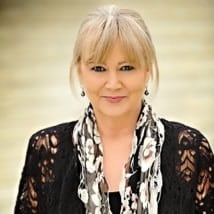
Another Kind of Courage
When my oldest son was around ten years old, he was a nationally-ranked rock climber with ambitions to climb the Seven Summits, the highest peaks on each of the seven continents. I’d always loved hiking in the mountains, and I thought how fantastic it would be to climb these behemoths too. But I knew this wouldn’t happen. Not only was I already in my mid-forties and not nearly athletic enough to be a mountain climber, I was also terrified of heights and narrow ledges. This is not good if you want to summit snow-capped peaks.
But as it turned out, I was able to climb as many mountains as I wanted. I didn’t have to become an athlete. I didn’t have to face my fears. Instead, I stepped into the boots of my characters. By pursuing one dream, of becoming a writer, I have been able to fulfill many more. 
In the last ten years, I’ve climbed Denali (the highest peak in North America), driven a long-haul truck, been trapped in a deep pit, and run away from home more times than I care to remember, mostly while resting on my laurels. This is not to say I’ve done all this by sitting at my desk and making things up. One of the perks, and requirements, of being a fiction writer is having an excuse for spending so much time reading, researching, and observing. For my new novel, The Damnable Legacy of A Minister’s Wife, I even went up to a little town in Alaska called Talkeetna, where I tasted caribou chili, saw the bright midnight sun, and flew up to base camp to hang out with all sorts of cool climbers and rangers on the mountain.
But greater than all the tangible research experiences of writing fiction has been having the opportunity to spend time living inside the minds of other people. Like acclaimed actors, fiction writers rely on intuition and experience, as well as their understanding of human psychology, to strive to understand how a character might behave in a given set of circumstances. By living vicariously through fictional men and women, I’ve discovered new joys, but also new sorrows, like the pain of unanticipated life transitions or the regret from making poor choices I’ll thankfully never have to really make. I’ve revealed the shadow selves of people in my pages, and in so doing have been forced to recognize my own hidden personas.
Carl Jung and his followers believed that we all have shadow selves, those parts of our personalities that are repressed because they don’t live up to the ego’s interpretation of what’s ideal. Many psychologists, philosophers, and other experts suggest that self-reflection and acceptance of those less-than-perfect attributes is essential for wholeness to eventually emerge. As I followed my characters through my novel, I did a lot of reflecting and began to question my own levels of integrity, respect, and trust.
In one scene, the protagonist accuses a man of raping her, and she is immediately barraged with questions as the other characters question whether she’s telling the truth. When I first wrote the scene, my intention was to mirror what many real-life rape victims face when they say they’ve been raped. But as I continued to revise the scene, I began to look at it through the eyes of each of the characters, with their unique fears and motivations, and I also began to wonder (even though I was the writer!) whether in fact she was telling the truth. The more I questioned her honesty, the more frustrated I became with myself. I had never thought I wouldn’t believe a rape accusation. But there I was having difficulty trusting someone I’d created. Writing fiction can be an enormous emotional undertaking, even when it takes place in a parallel universe.
Before I became a writer, I’d never given much thought to the people that made up the stories I read. I didn’t much care about them. But now I do, because I’ve learned first-hand that many fiction writers spend far less time putting words on the page than they spend exploring the mysteries of humanity and even their own hidden psyches. These are explorations that aren’t usually found on your average bucket list the way climbing a mountain might be. These are journeys which require a different sort of energy, strength, and courage.
Gail Elizabeth Kretchmer











3 comments to "Another Kind of Courage"